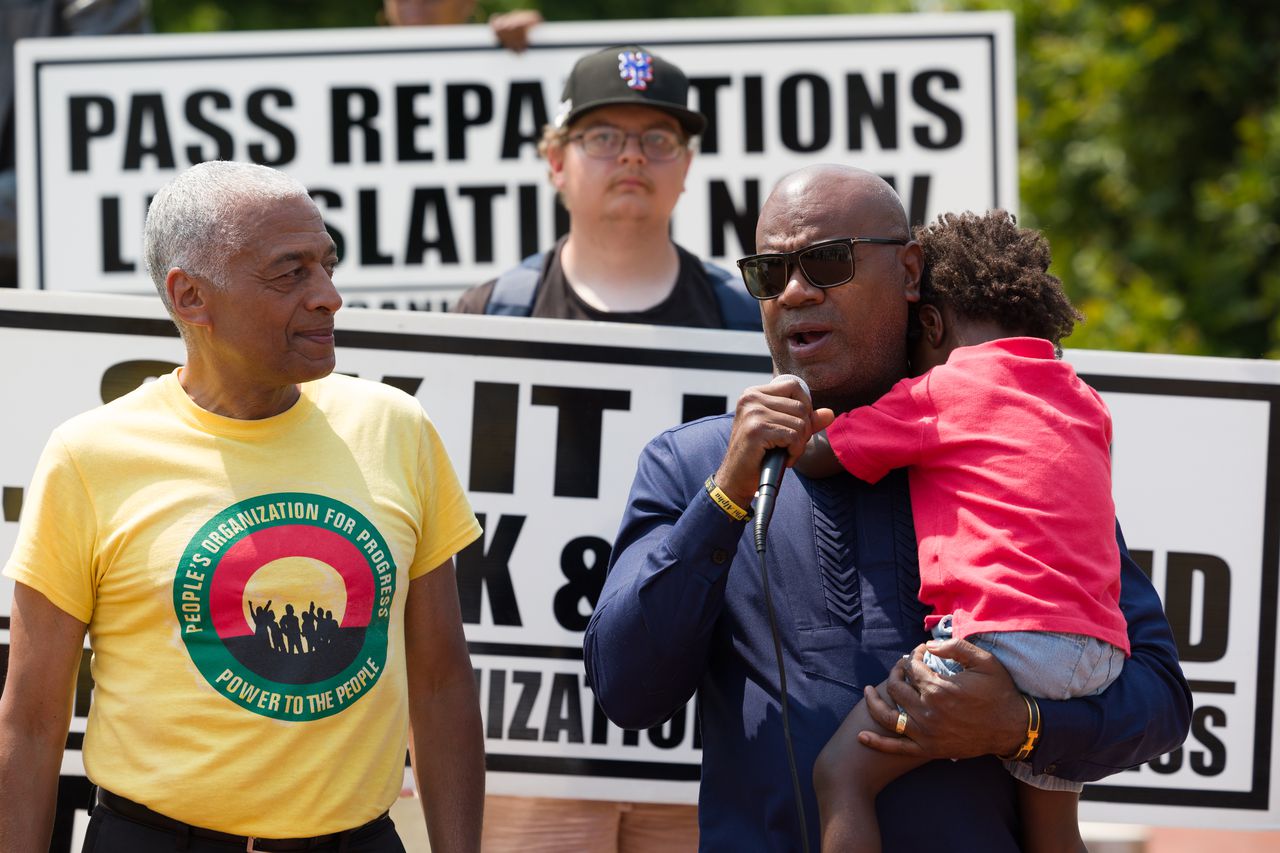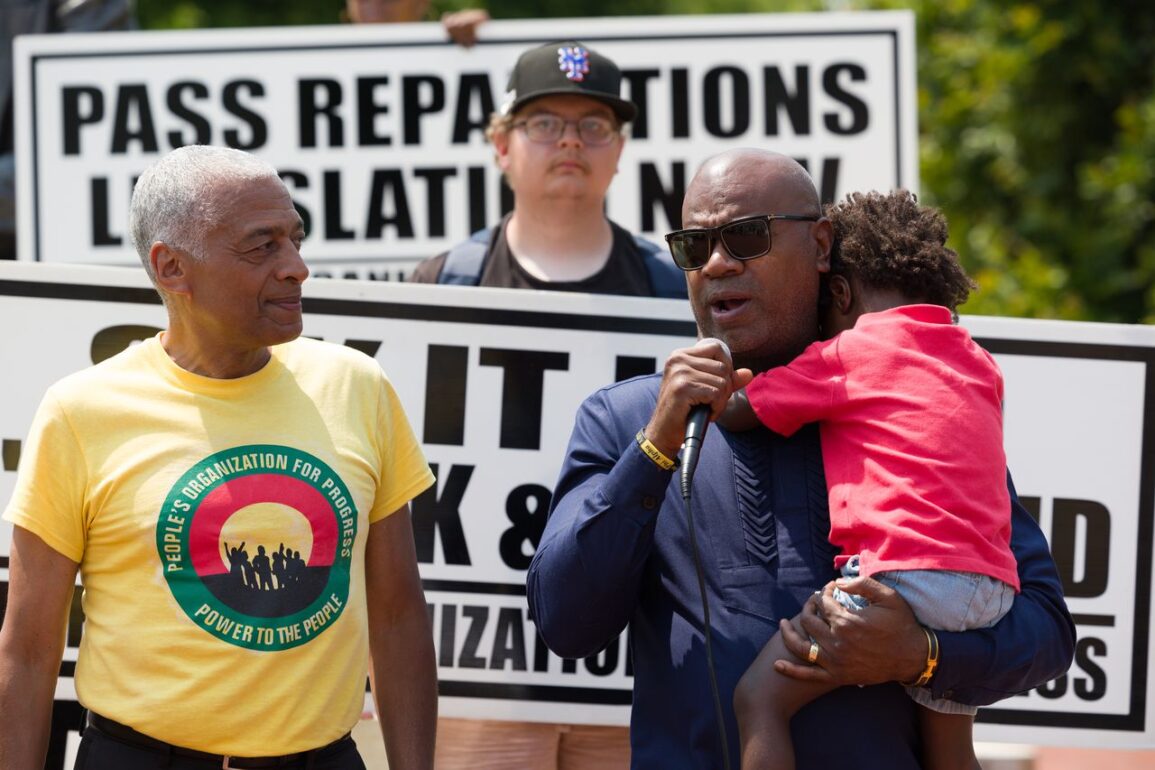Newark Mayor Ras Baraka had a simple answer for why he narrated a new video explaining the need for reparations for African Americans.
“They asked me to,” Baraka told NJ Advance Media. “I think it’s important. I wanted to be a part of it in any way.”
The video was produced by the New Jersey Institute for Social Justice. “Say The Word: Reparations in New Jersey” is a three-minute, animated video packed with 400 years of history explaining why a discussion about compensation should be taken seriously. It is currently featured on the institute’s YouTube channel.
“This is a historical stain on America’s legacy for a long period of time,” said Baraka, whose father, Amari Baraka, also known as LeRoi Jones, was a prominent poet and leader of social justice campaigns starting in the late 1950s until his death in 2014. “Some of the issues that have been long standing in New Jersey. Some of this stuff can be remedied by just having a discussion about policies to address some of the things that have happened.”
Baraka and officials in 17 other municipalities in the state have led efforts to pass resolutions supporting an effort in the state Legislature to establish a task force to explore what reparations in New Jersey may look like. It was an effort to back a bill that has languished in the state Legislature since 2020 without ever getting a hearing.
The New Jersey Institute for Social Justice has aided the effort since its inception. Now, the animated short narrated by Baraka is gaining an audience explaining why New Jersey was the last northern state to outlaw slavery in 1866, a year after the Civil War ended and three years after the Emancipation Proclamation.
The Garden State once paid an incentive for landowners who owned slaves and was also the only Northern state that Abraham Lincoln did not win in the election of 1864. It initially did not approve the 13th Amendment abolishing slavery.
“We’ve done a lot of public education events and one of the things we realized was that folks simply did not know about the history of slavery in New Jersey or the history of Jim Crow in New Jersey, or about ongoing institutional racism in New Jersey,” said Jean-Pierre Brutus, senior counsel for the economic justice program for the New Jersey Institute for Social Justice. “We felt that a great way to get out this information that’s presentable and accessible is an explainer video that they can digest in a short period of time.”
Some of the information in the video is that in 1830 two-thirds of all Black people enslaved in the North lived in New Jersey. And after slavery, practices like Red Lining, initiated by the federal government, outlined homes in Black communities where federal loan assistance and commercial bank loans, even for returning military veterans, was prohibited.
That practice prevented millions of Blacks from building generational wealth to pass on to descendants. The practice has also led New Jersey to being among the most segregated states in the country and with disparities like an 18 to 1 incarceration rate between people of color and whites, which the institute said is the highest in the nation.

Newark Mayor Ras Baraka and his ‘little one’ (right) join Lawrence Hamm, founding chairman of The People’s Organization for Progress, at the annual Juneteenth March and Rally for Reparations at the Lincoln Memorial in Newark on June 19. Steve Hockstein | For NJ Advance
“If we admit that harm was done, don’t we have to repair the harm that has already taken place?” Baraka said. “If we were in a court of law and you admit that you did harm to someone then there must be a redress of grievance. The basic tenants of property in America don’t end even when you die. You can pass that down from generation to generation. So the harm is passed down to generations and it must be repaired.”
With the legislation languishing in the Legislature, the New Jersey Institute for Social Justice has established its own commission of experts to discuss what reparations in New Jersey and America may look like. It may include funding reparative policies and direct payments.
“Things may seem divided now and may seem like an impossibility, but the things we take for granted, like civil rights or abolition, were also impossibilities in their moments,” Brutus said, acknowledging the current political divide of the country. “So there’s no reason why reparations can take that same form.”
Please subscribe now and support the local journalism you rely on and trust.
Bill Duhart may be reached at bduhart@njadvancemedia.com.


